“Synergized Innovation•Shared Prosperity – Responsible Outbound Investment Salon on Risk Management” was successfully held in Beijing
“Synergized Innovation•Shared Prosperity – Responsible Outbound Investment Salon on Risk Management” was held in Beijing on October 31st, 2015, under the coordination of Collaborative Innovation Center for China’s Multinational Enterprise, University of International Business & Economics (UIBE), China Society for World Trade Organization (WTO) Studies, MOFCOM, and China International Chamber of Commerce for the Private Sector (CICCPS). It was held by Center for International Business Ethics (CIBE), UIBE, and co-organized byEmbassy of Sweden in Beijing; Globethics.net (Switzerland); SynTao Co., Ltd; Institute of International Economy, UIBE; China Strategy Research Center for Open Economy and International Technology Cooperation (SCOT), UIBE, and WTO Tribune Magazine, MOFCOM. More than a hundred guests and audience from business, academia, government departments, trade associations, NGOs, media and MBA / MPA attended this event.
At the beginning, Lin Guijun, Vice President of UIBE, Sun Zhenyu, Chairman, China Society for WTO Studies, MOFCOM, Wang Yanguo,Vice President and Secretary General, CICCPS, and Walter Fust, Chairman of the Board of Globethics.net gave their opening speech respectively. This secession was emceed by Associate Professor Li Li of Institute of International Economy, UIBE.
 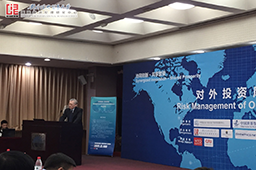
 
President Lin pointed out that China has a bursting foreign investment and diversifying fields of investment in recent years; at the same time, outbound investment also faces a more complex global environment and governance challenges. In such a background, Chinese enterprises need to strengthen their corporate social responsibility (CSR) construction to better fit into the investment environment overseas and enjoy the achievements of Chinese economy development with host countries. Chairman Sun believed that the successful visit to the United States and the United Kingdom by President Xi and the acceleration of “One Belt, One Road” has provided broad opportunities for direct outbound investment, not to ignore their business risks and non-business ones. Chinese enterprises must make sufficient preparations before they go out, especially paying attention to enhance training in social responsibility, be familiar with local laws and respect their culture. The investment should bring real benefits to sustainable development of host countries under the spirit of long-term cooperation and reciprocity. Wang Yanguo, Secretary General, gave his suggestions on outbound investment risks for private enterprises in China and the role of government and the chamber of Commerce in promoting the construction of social responsibility of Chinese enterprises “going out”. Mr. Walter Fust shared his ideas on definition, evaluation, management and government of corporation risks from the perspective of business ethics.
Then, Diana Madunic, Swedish CSR Ambassador, Hu Wei, Vice President, Zhenfa New Energy Company, and Liang Xiaohui, Deputy Chief Economist, China National Textile Information Centre made their keynote speeches.
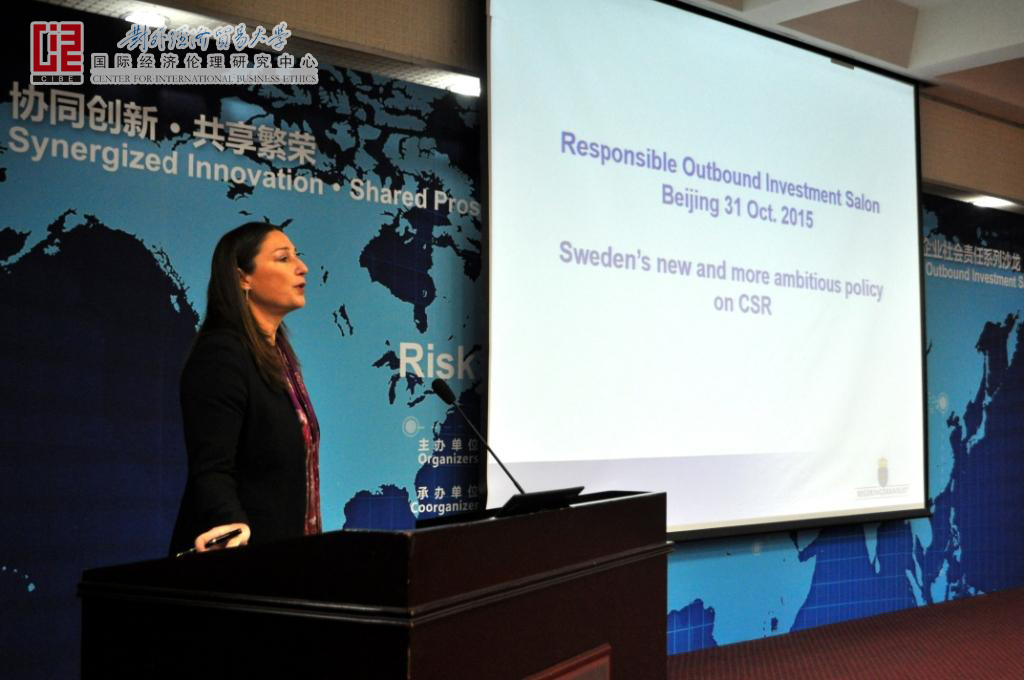
Ambassador Diana Madunic pointed out that different countries held different understandings to CSR. For example, Sweden has put forward requirements on respecting human rights, protecting the environment, opposing corruption and respecting labor rights and interests those four aspects. In addition, gender equality, ethics and sustainable tax issues also caused widespread concern in Sweden. Currently, the Swedish government is promoting the formulation of social responsibility policies for government and enterprises, and hopes that Swedish companies in the domestic and foreign markets are able to consciously abide the relevant international standards, and be a model in the performance of social responsibility. Consciously fulfilling social responsibility is imperative, which not only relates to corporate risk management, but also is the source of corporate competitive advantage and reputation.

Zhenfa New Engery Company, a private company, which Mr.Hu Wei serves for and is one of the largest photovoltaic power investment development operators, has been committed to the development of the photovoltaic industry terminal application market and adhered to the combination of economic and social benefits of photovoltaic power generation over the years. Mr.Hu introduced a series of CSR projects of the company and the positive social impacts they brought, and he also pointed out that, the overseas security risks, the challenges of the anti corruption and many other risks that Chinese enterprises face in the process of "going out".
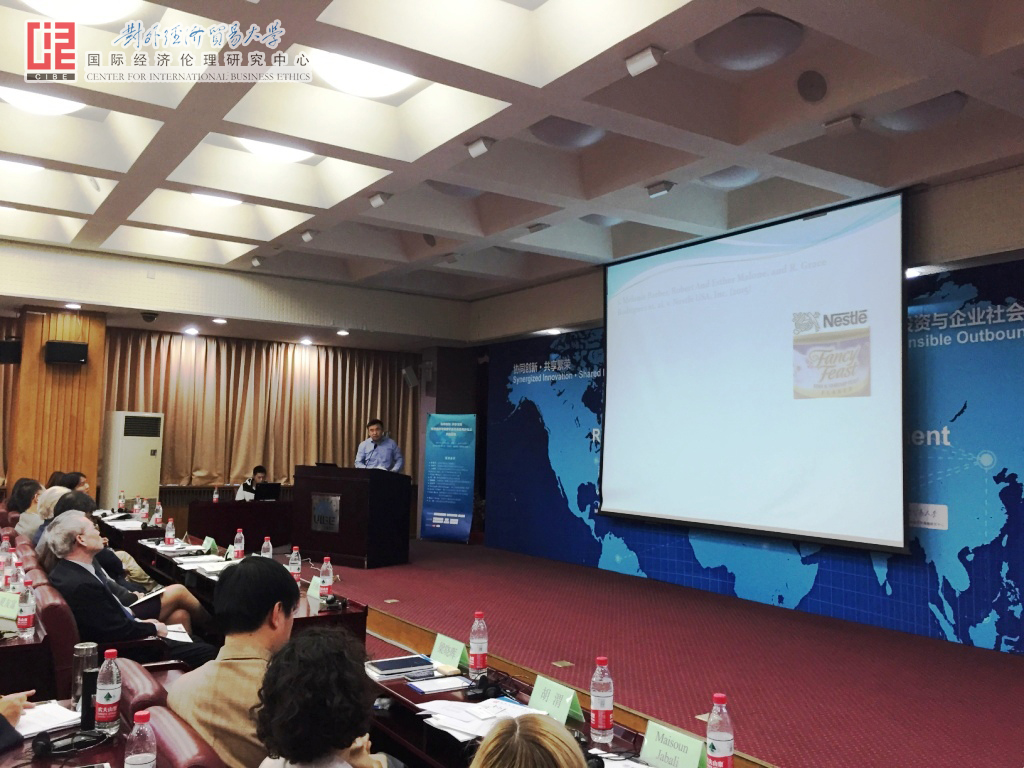
Mr. Liang Xiaohui went to study in Harvard University and obtained his doctorate in Law. He explained the diversity of social risks in the process of outbound investment through three examples which happened recently abroad, and shared the wisdom of CSR management from the perspective of global supply chain. Mr. Liang believed that based on risk identification and aversion, Chinese companies still need to face the errors that may occur in operations overseas, combine social responsibility management consciousness with the location choice of foreign investment, comply with local laws and regulations, strengthen the value of local stakeholders, and consciously carry out due diligence work. Forming a chamber of Commerce can be considered to carry out lobbying.
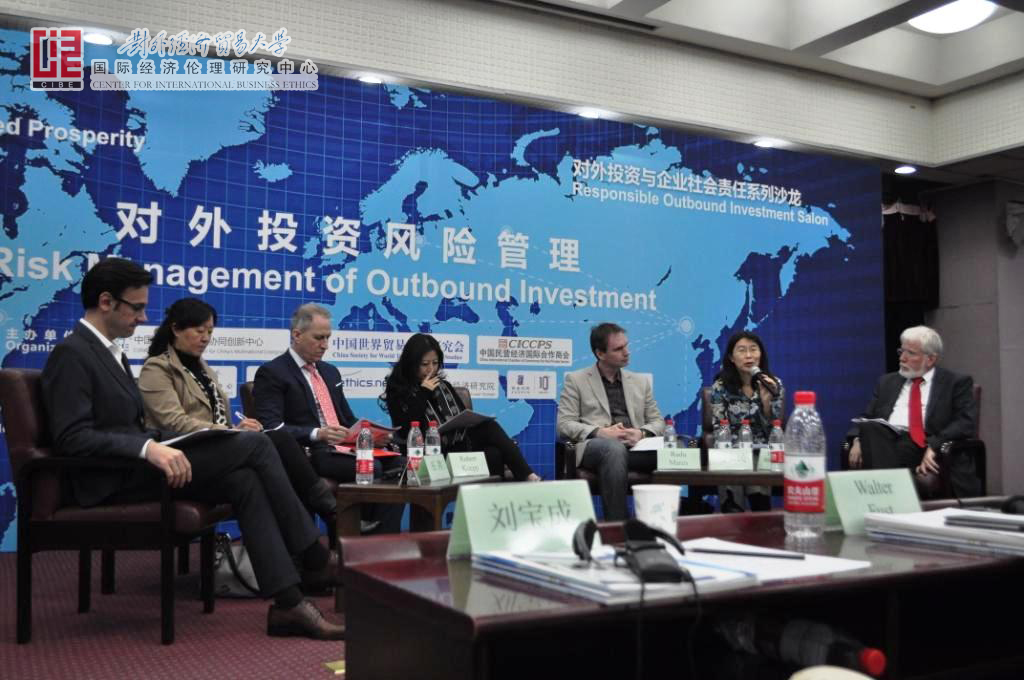
Bian Yongmin, Director, International Law Department, Law School, UIBE, Christoph Stückelberger, Executive Director of Gloethics.net, Jason G Tower, Representative for Northeast Asia, American Friends Service Committee, Radu Mares, Senior Researcher at Raoul Wallenberg Institute of Human Rights and Humanitarian Law, Associate Professor at the Law Faculty in Lund, Sweden, Robert Koepp, Director, Beijing Corporate Network, Economist Group, and Zhuang Rui, Deputy Dean, Institute of International Economy, UIBE participated in the panel discussion on China's foreign direct investment, CSR and risk management, and other related issues. This section was emceed by Li Dongning, CCTV-News Anchor. This part discussed: the issues of international and local CSR standards; the relationships between value, leadership and business ethics; the contributions of NGOs in reducing outbound investment conflicts; international business and human rights laws; China's economic transformation and the development of civil society; the role of government and chamber of Commerce in risk management of China's foreign direct investment; CSR legislation; training and education issues, etc.
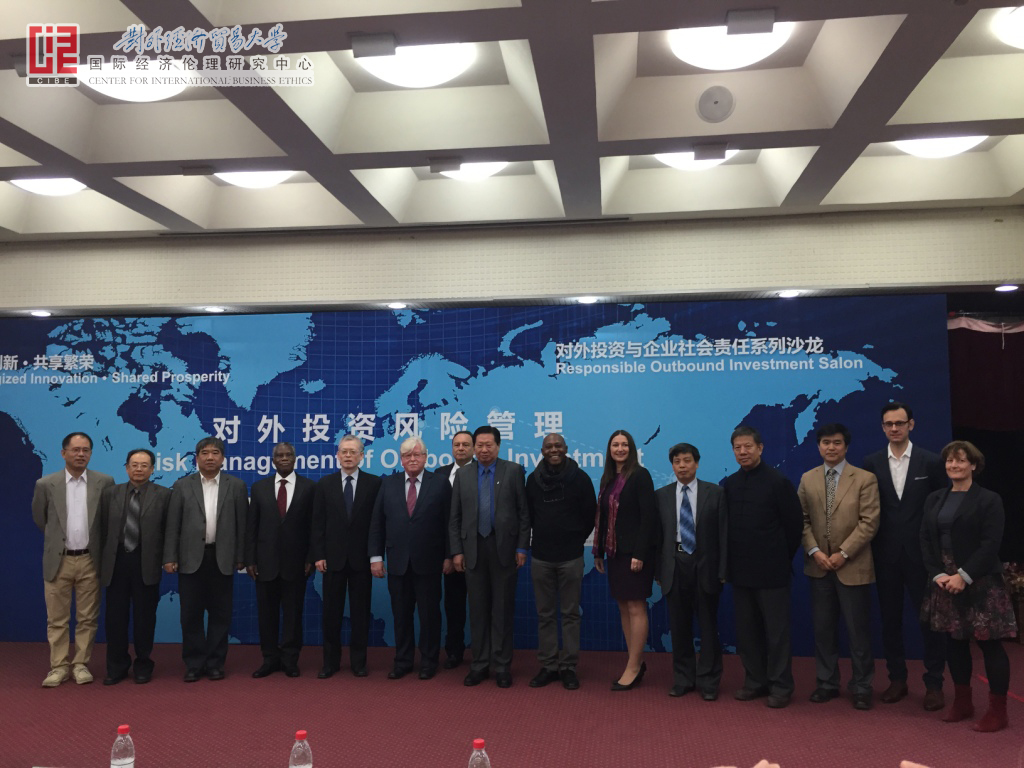 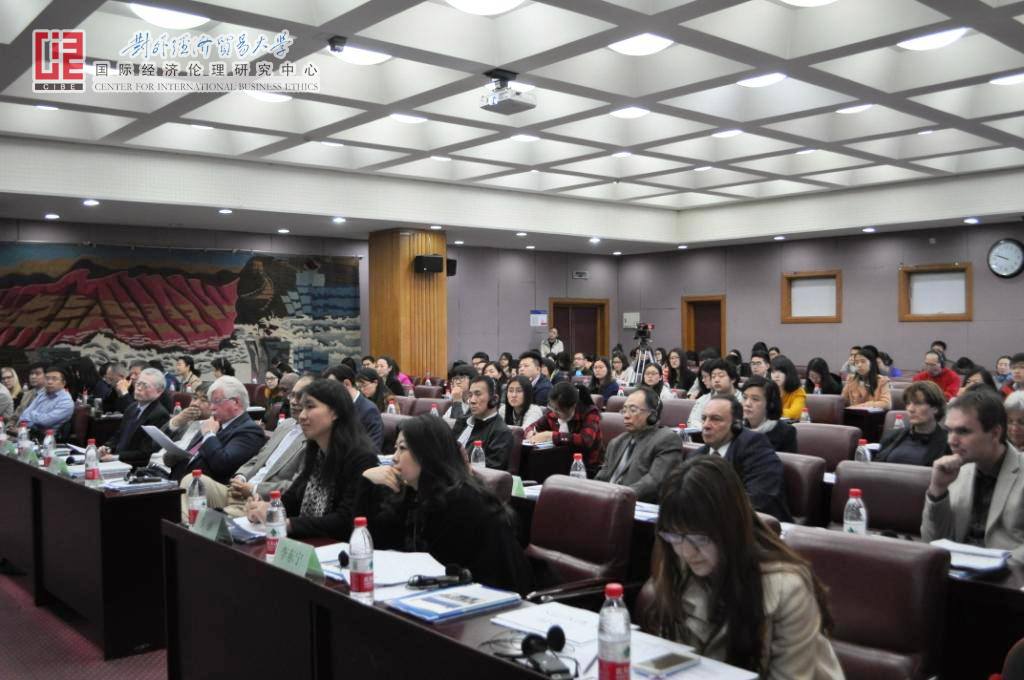
At last, Liu Baocheng, Director of CIBE, UIBE gave a closing remark. Prof. Liu pointed out that the achievements of Chinese enterprises in outbound investment cooperation in recent years were obvious to all. But the growth of reputation of Chinese enterprises overseas is still slower than their scales, more extensive investment areas but transparency issues are often being criticized. Responsibility is the basis for building a sustainable leadership. If China wants to play a bigger role in global governance, more responsible behaviors are needed, and building an inclusive value system is much more important. This salon, titled with "Synergized InnovationžShared Prosperity", is looking forward to promote the dissemination and practice of pluralism thinking through a series of discussions and dialogues.
The salon came to an end successfully in the hot discussion of audiences and guests.
|
